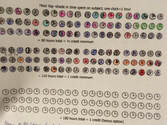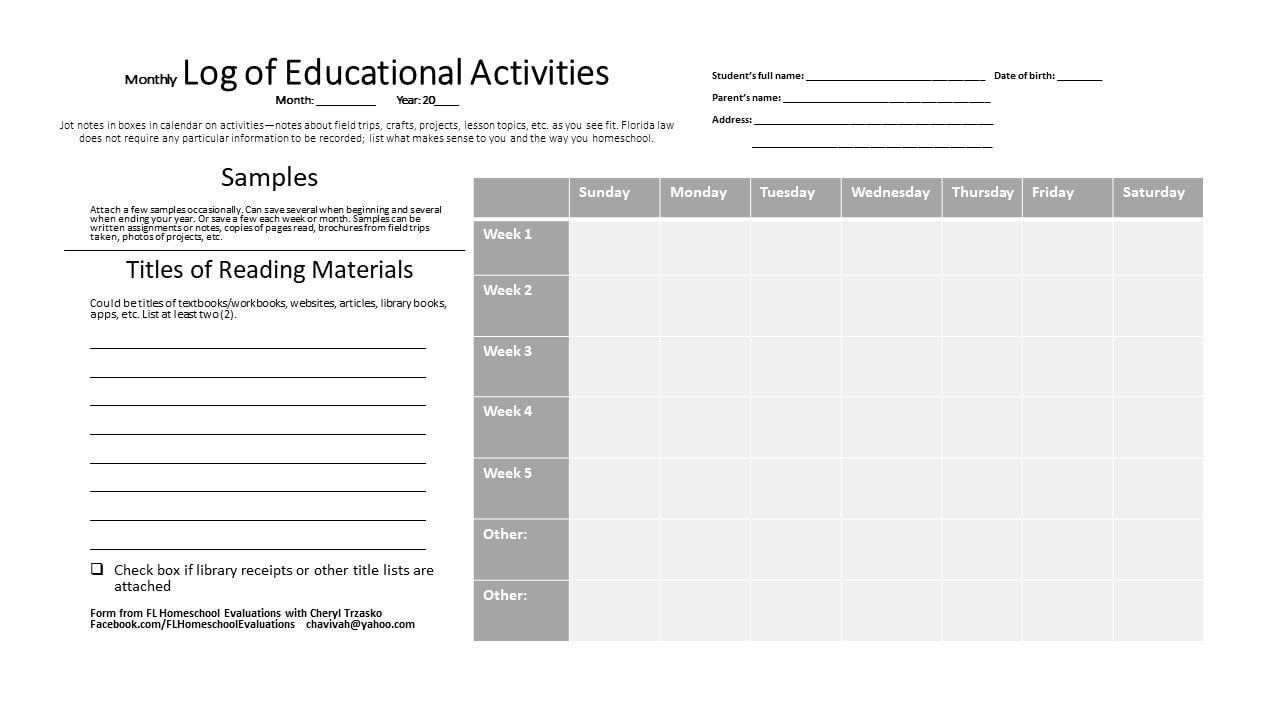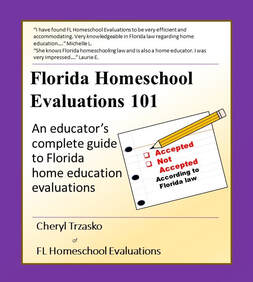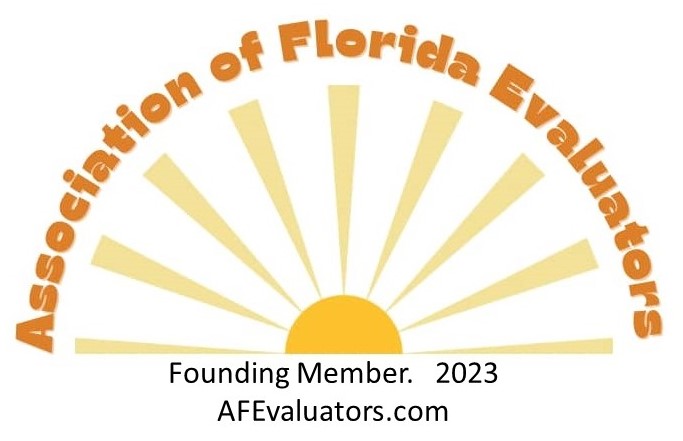|
Talking About
Florida Homeschooling... Evaluations and More |
A good evaluator works for the parents, assisting them in meeting legal requirements and in supporting them when districts overstep their bounds." |
Homeschooling High School
1 Comment
Portfolio Review/Audit: What Should We Expect if the District Audits our Portfolio?
Can a Middle Schooler Earn High School Credit? The short answer is: Yes.
The longer answer is: Yes, after all, public schools routinely give middle school students high school credit, especially for classes like Algebra 1 and Spanish 1. In fact, Florida colleges--through their dual enrollment programs--often give college credit to middle school students; if students can earn college credit in middle school, they can certainly earn high school credit. Does everyone agree? No. Just today, I saw some teachers and tutors advise parents that they can't give  Figuring out how to grant high school credits seems daunting to some homeschool parents, but it’s not as difficult as many imagine. There are several different options for figuring out credits. Parents can mix-and-match them, using one method for one class and another method for another class. Or pick a favorite and stick with it. A lot of high school students earn college credit before graduating high school. Several avenues for doing this are available to homeschooled students and a lot of students graduate high school as homeschoolers with several college credits or even a two-year AA degree to their name.
AP Exams Advanced Placement (AP) courses are a popular option in schools. Part of the reason for their popularity is that high schools get higher ratings if they have more of their students take AP exams and higher ratings can lead to more funding. Note that some ratings aren't even based The Florida Department of Education's Office of Choice used to say, in their Home Education FAQ, that home educated students do not receive diplomas but could seek GEDs. I challenged that when the FAQ pages were being updated in October 2020 because home education students DO receive diplomas. They don't receive diplomas from local school districts because--as state law says--home education programs are not school district programs. Of course a school district won't give
High School Transcripts
A high school transcript is a brief one-page (or at most two-page) summary of a high school student's education. A transcript may be used as proof of a student's educational record for admission to a school or college. Some potential employers will ask to see a high school transcript--I was asked to show my high school transcript to an employer even though I'd graduated college more than a decade earlier and had graduate school credits, too. So, while parents are not required by Florida law to prepare a transcript for their high school student, wise parents will make sure their children have a high school transcript. Parents who create a set of course descriptions will be able to take the information needed for the transcripts directly from the course descriptions they've written. What are course descriptions? Why keep them?
Schools publish course descriptions for the courses they offer to help students decide whether to sign up for a class, as well as to help anyone (including college admissions officials and potential employers) who wants more information about their courses. The quality of high school courses given can vary a lot even within a single school. Most textbooks include much more information than can possibly be covered in a single year and high school teachers often have freedom to pick and choose which parts they will use with their students. Several years ago, I was tutoring a public school student in English. Her literature textbook included classics by Shakespeare, Mark Twain, O. Henry, Dickens, and more. It included a variety of modern pieces from various parts of the world. It also included pieces by Dr. Seuss: The same Dr. Seuss that many children read in kindergarten or first grade. Her public school English teacher had assigned reading material by Dr. Seuss. While college admissions officers, employers, and others may assume that a public school is providing a decent education, some will have more questions about a homeschool education. Part of the purpose of the course description is to help outsiders get a tiny glimpse of the type of courses your child has taken as a homeschooled student. Is your child getting a top-quality education? A general hands-on education? A modern education covering the world? A classic education? Or a barely literate, reading-Dr.-Seuss-in-high-school kind of education? Q: I'm putting my child in school in January. We haven't homeschooled her for a year yet. Since it's been less than a year do I need to turn in an evaluation? ---- A: Per Florida law, an evaluation is due once a year (by the anniversary of your letter of intent) OR within 30 days of sending in a Letter of Termination to tell the school district that you are done home educating your child. Sending in a letter of intent, evaluation, or other paperwork?
From Cheryl Bottini, the Palm Beach County Home Education Liaison—the one who handles home education paperwork for the Palm Beach County School District: “We are several weeks behind in responding to emails. This is a first for us. We have always been proud to have at |
Archives
April 2024
Categories
All
|

 RSS Feed
RSS Feed









